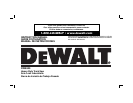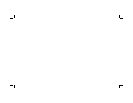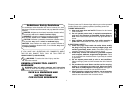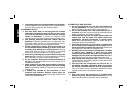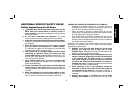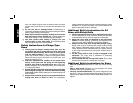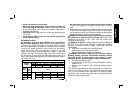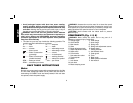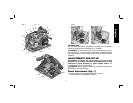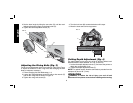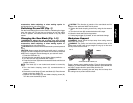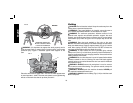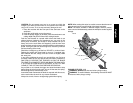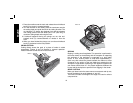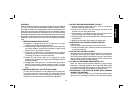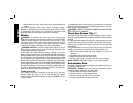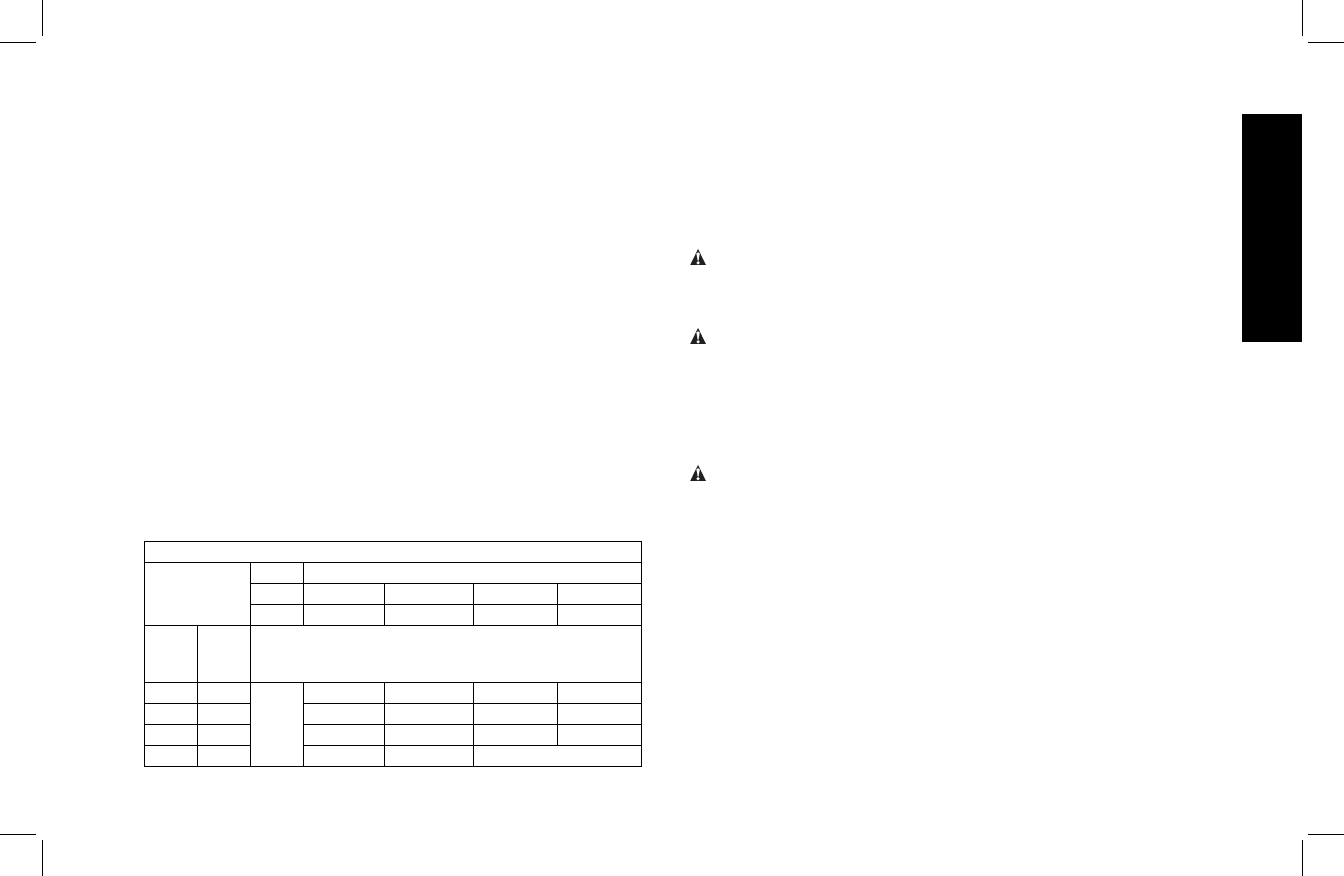
English
5
• Never use abrasive cut-off wheels.
• Keep your body positioned to either side of the blade, but
not in line with the saw blade. kickback could cause the saw
to jump backwards (see Causes and Operator Prevention of
Kickback and kickback).
• CAUTION: Blades coast after turn off. Serious personal injury
may result.
• Avoid cutting nails. In spect for and remove all nails from
lumber before cutting.
EXTENSION CORDS
An extension cord must have adequate wire size (AWG or
American Wire Gauge) for safety. The smaller the gauge number
of the wire, the greater the capacity of the cable, that is 16 gauge
has more capacity than 18 gauge. An undersized cord will cause
a drop in line voltage resulting in loss of power and overheating.
When using more than one extension to make up the total
length, be sure each individual extension contains at least the
minimum wire size. The following table shows the correct size to
use depending on cord length and nameplate ampere rating. If in
doubt, use the next heavier gauge. The smaller the gauge number,
the heavier the cord.
MINIMUM GAUGE FOR CORD SETS
Ampere
Rating
Volts Total Length of Cord in Feet (meters)
120V 25 (7.6) 50 (15.2) 100 (30.5) 150 (45.7)
240V 50 (15.2) 100 (30.5) 200 (61.0) 300 (91.4)
More
Than
Not
More
Than
AWG
0 6 18 16 16 14
610 18 16 14 12
10 12 16 16 14 12
12 16 14 12 Not Recommended
• Air vents often cover moving parts and should be avoided.
Loose clothes, jewellery or long hair can be caught in moving
parts.
• Accessories must be rated for at least the speed recommended
on the tool warning label. Accessories running over rated speed
can fly apart and cause injury. Accessory ratings must always be
above tool speed as shown on tool nameplate.
WARNING: ALWAYS wear proper personal hearing protection
that conforms to ANSI S12.6 (S3.19) during use. Under some
conditions and duration of use, noise from this product may
contribute to hearing loss.
WARNING: ALWAYS use safety glasses. Everyday eyeglasses
are NOT safety glasses. Also use face or dust mask if cutting
operation is dusty. ALWAYS WEAR CERTIFIED SAFETY
EQUIPMENT:
• ANSI Z87.1 eye protection (CAN/CSA Z94.3),
• ANSI S12.6 (S3.19) hearing protection,
• NIOSH/OSHA/MSHA respiratory protection.
WARNING: Some dust created by power sanding, sawing,
grinding, drilling, and other construction activities contains
chemicals known to cause cancer, birth defects or other
reproductive harm. Some examples of these chemicals are:
• lead from lead-based paints,
• crystalline silica from bricks and cement and other masonry
products, and
• arsenic and chromium from chemically-treated lumber
(CCA).
Your risk from these exposures varies, depending on how often you
do this type of work. To reduce your exposure to these chemicals:
work in a well ventilated area, and work with approved safety
equipment, such as those dust masks that are specially designed
to filter out microscopic particles.



